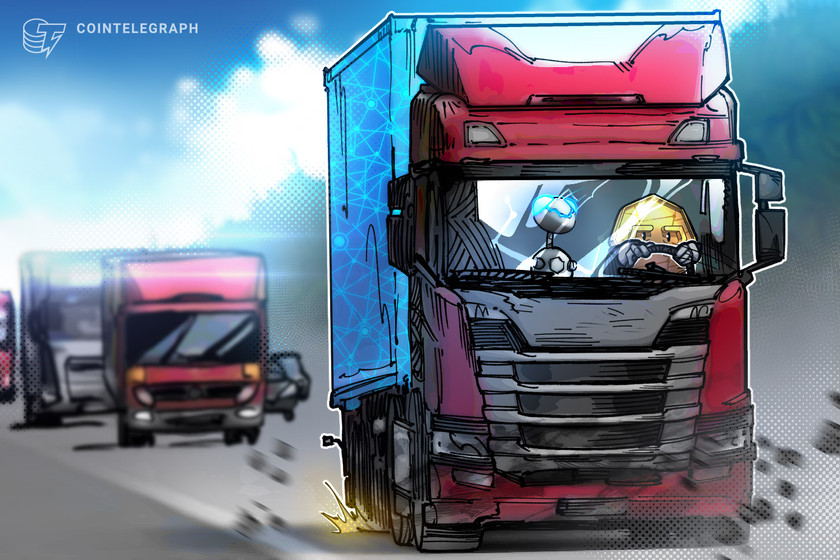The trucking industry is one of the most important sectors in the world. According to recent statistics, the global freight trucking market was worth over $2.7 trillion in 2021. In addition, it’s been found that millions of commercial driver’s license holders are employed by trucking companies within the United States, a market that is responsible for delivering 70% of all freight.
Given these statistics, it shouldn’t come as a surprise that technology has become a critical component for ensuring the advancement of the trucking industry. Yet while GPS tracking, autonomous driving and other mainstream technologies may be apparent, a couple of organizations are aiming to bring decentralized finance (DeFI) to the trucking sector to advance its payment systems.
Faster, fairer payments for trucking companies
Philip Schlump, chief commercial officer and lead developer of TruckCoinSwap (TCS) — a Wyoming-based fintech and freight company — told Cointelegraph that there are more than one million trucking companies and third-party logistics firms in the United States relying on banking entities to get paid. Schlump, who is also a former truck driver, explained that this has become the case due to how the full truckload industry’s payment system operates. He explained:
“When a truck picks up a full load of potatoes, for instance, a bill of lading is generated. This is essentially proof that the trucker and the trucking company are responsible for the potatoes during the shipment period. Once the potatoes are delivered, the bill of lading becomes account receivable, yet it often takes a net 30 to 180 days for trucking companies to receive payments.”
While Schlump pointed out that smaller full truckload companies tend to have better payment terms, 45 days is the average time it takes within the United States for truck drivers to get paid. As a result, trucking companies have become reliant on factoring firms to help truckers receive quicker payments, as these entities ensure payments are made within 10–14 days.
Yet, Schlump noted that this alternative eats away at drivers’ salaries. “Factoring companies typically charge 3% gross on every invoice, so a 20–25% interest rate is annualized over the term. These banking entities are collecting up to 90% of net revenue on every load simply because most carriers cannot wait the industry standard of 30–180 days to be paid directly by shippers,” he remarked.
Schlump believes that cryptocurrency,…
Click Here to Read the Full Original Article at Cointelegraph.com News…
























